Abstract
A cargo of copper ore from Cuba was discharged at Swansea in mid-September 1865, during a spell of exceptionally hot weather. A small number of mosquitoes infected with the yellow fever virus, disembarking at the same time, established an epidemic of yellow fever in the town. In the next 25 days, at least 27 inhabitants were infected and 15 of them died. The quality of contemporary observation and recording has encouraged a re-examination of the events in the light of knowledge unavailable at the time. It cannot be assumed that the episode will not be repeated.
Full text
PDF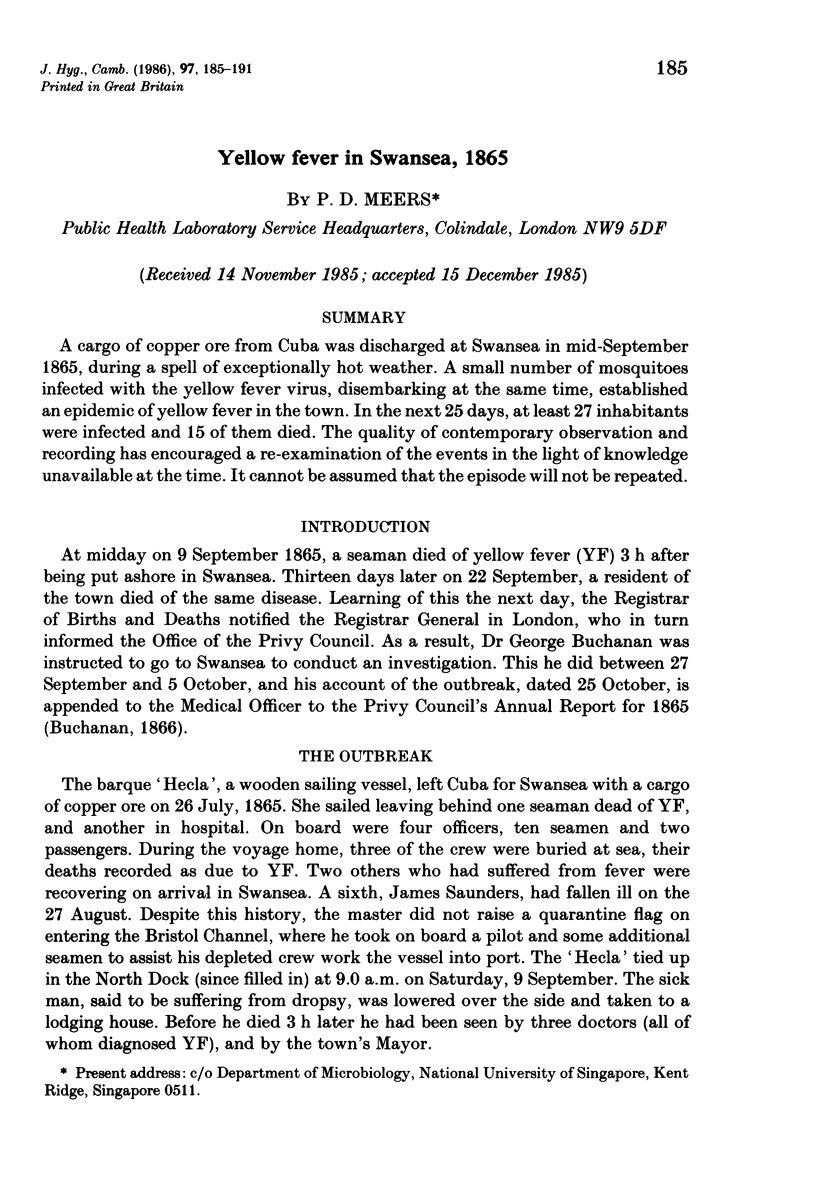
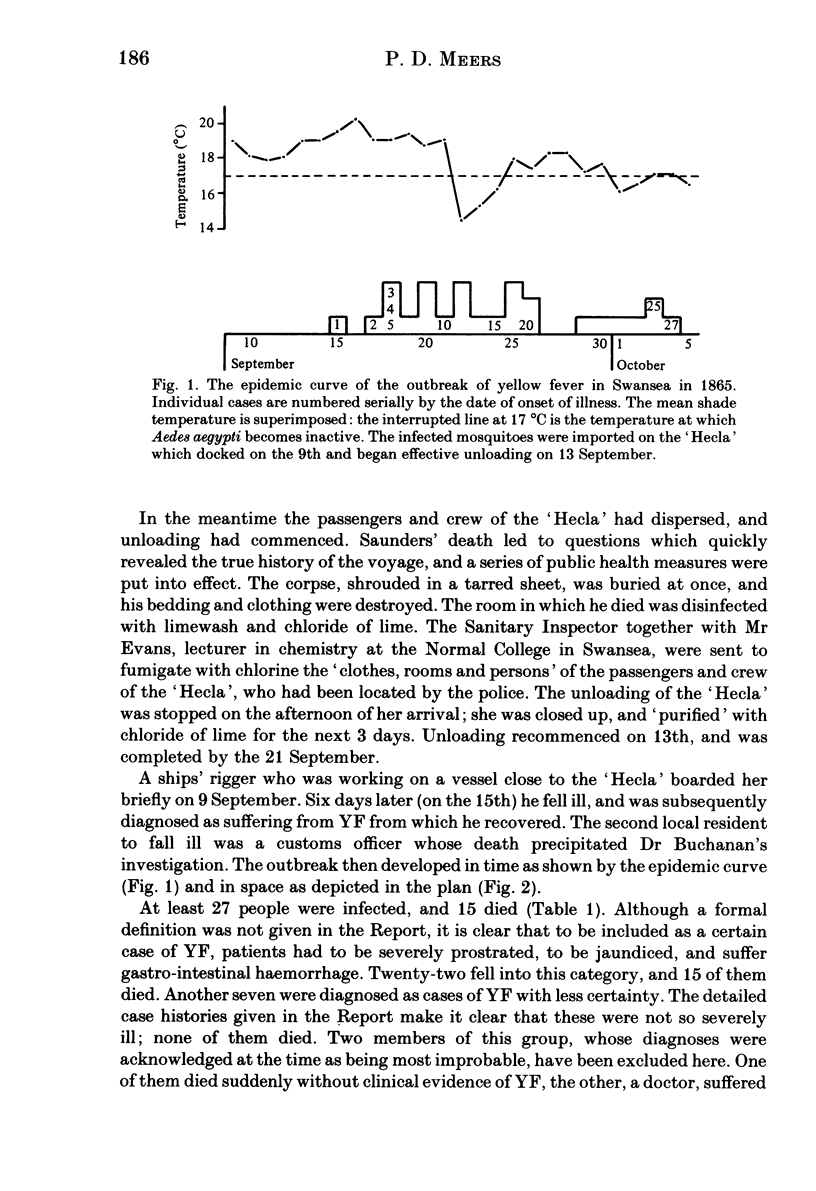
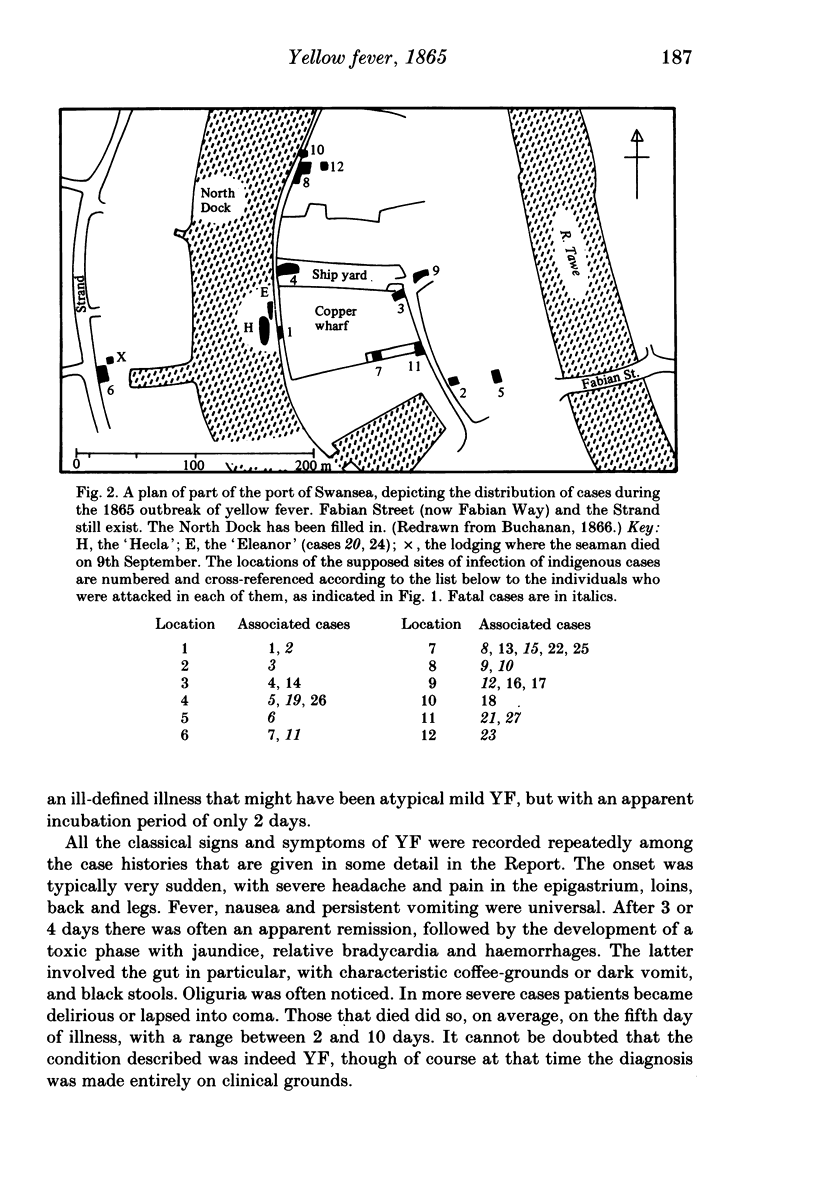
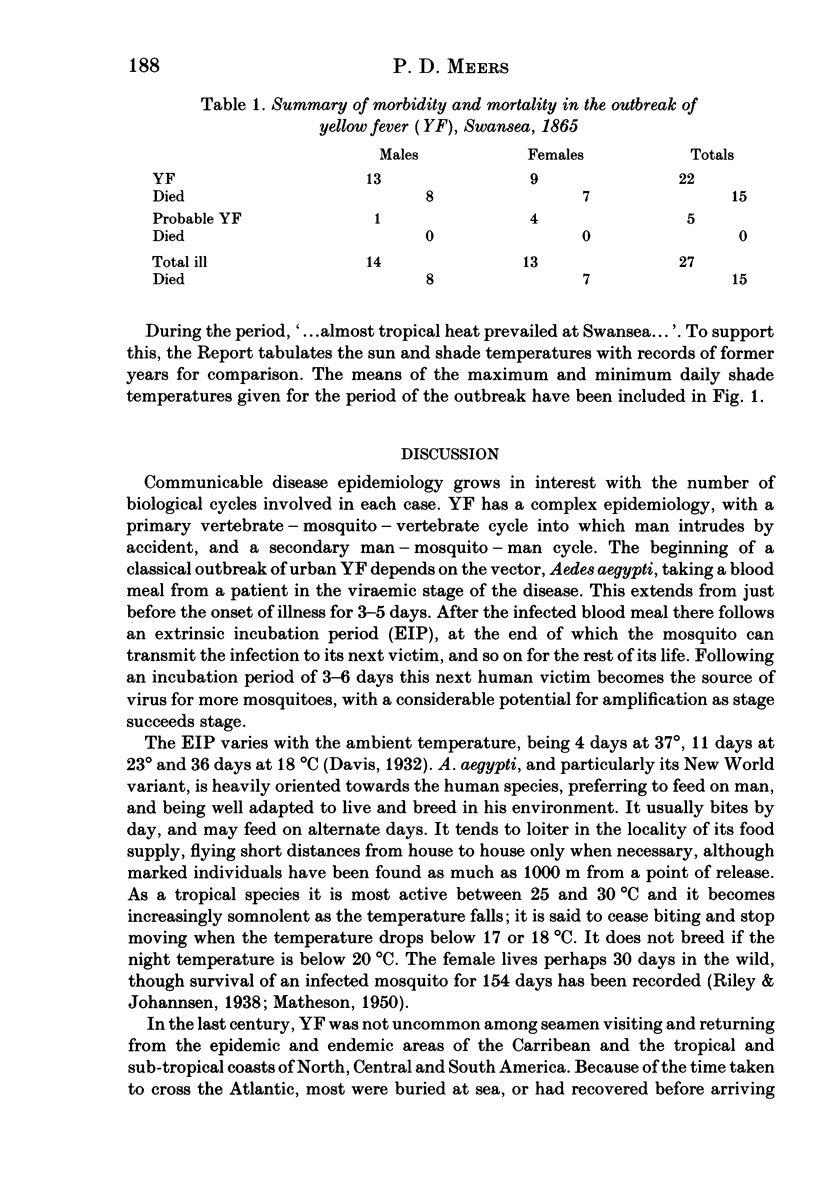
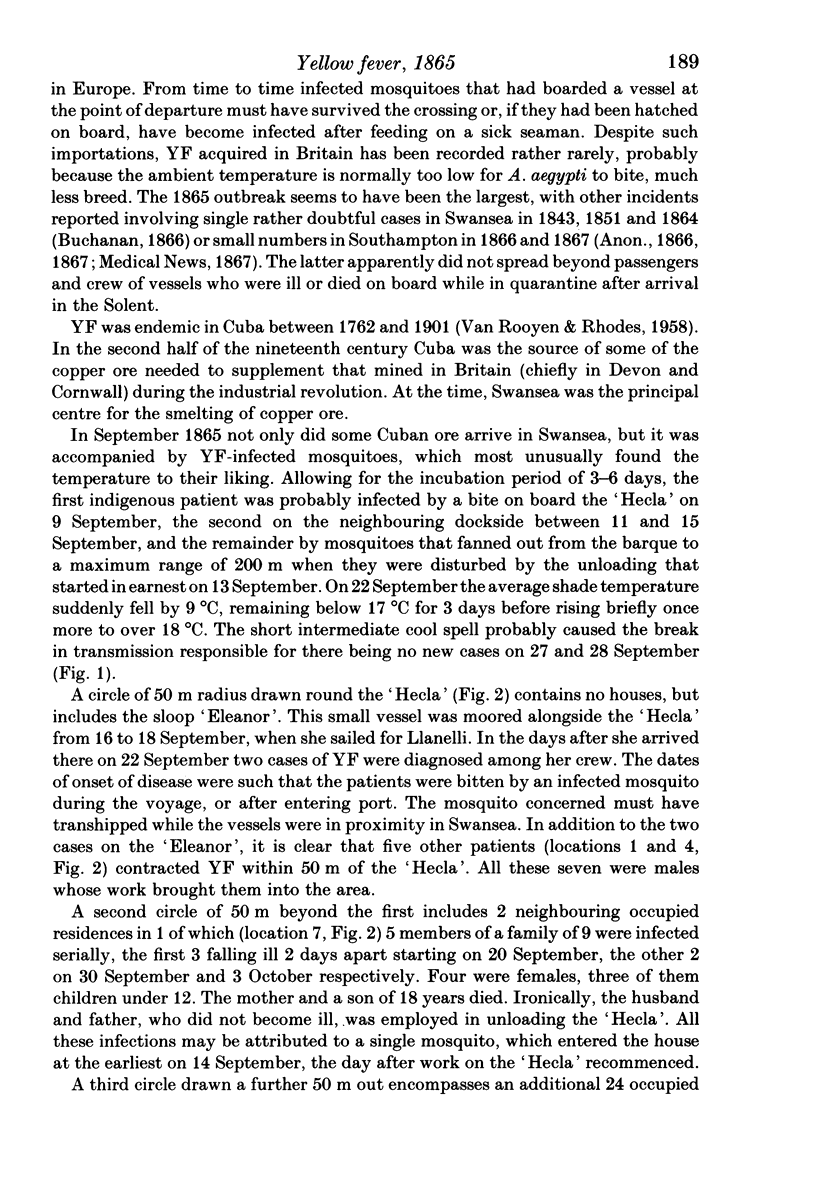
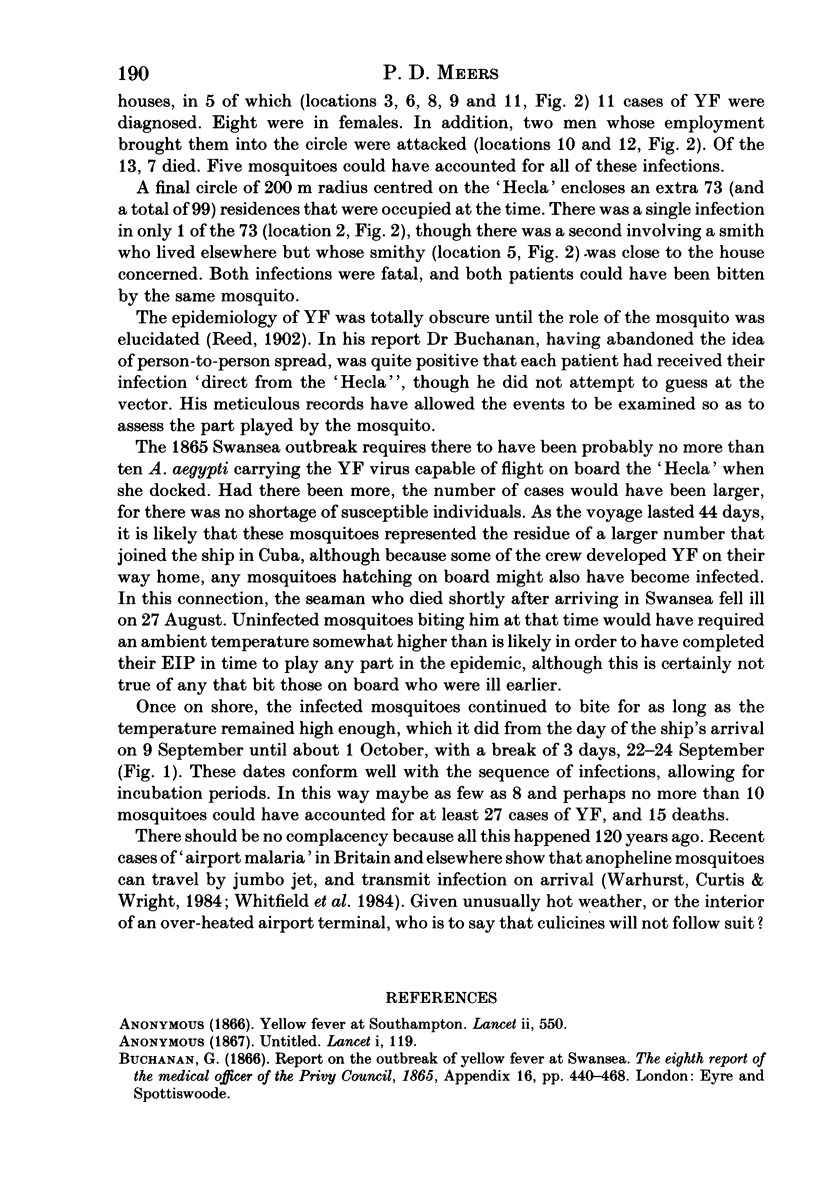
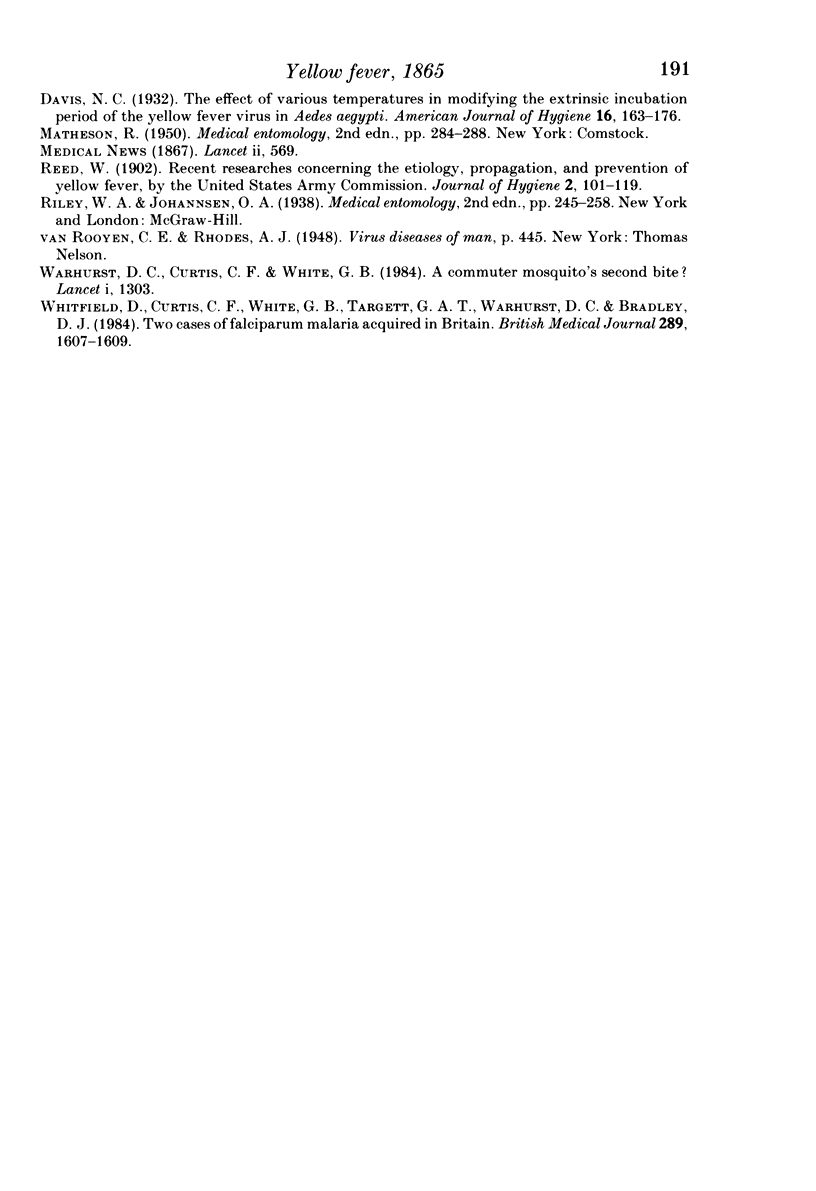
Selected References
These references are in PubMed. This may not be the complete list of references from this article.
- Warhurst D. C., Curtis C. F., White G. B. A commuter mosquito's second bite? Lancet. 1984 Jun 9;1(8389):1303–1303. doi: 10.1016/s0140-6736(84)92491-7. [DOI] [PubMed] [Google Scholar]
- Whitfield D., Curtis C. F., White G. B., Targett G. A., Warhurst D. C., Bradley D. J. Two cases of falciparum malaria acquired in Britain. Br Med J (Clin Res Ed) 1984 Dec 8;289(6458):1607–1609. doi: 10.1136/bmj.289.6458.1607. [DOI] [PMC free article] [PubMed] [Google Scholar]


